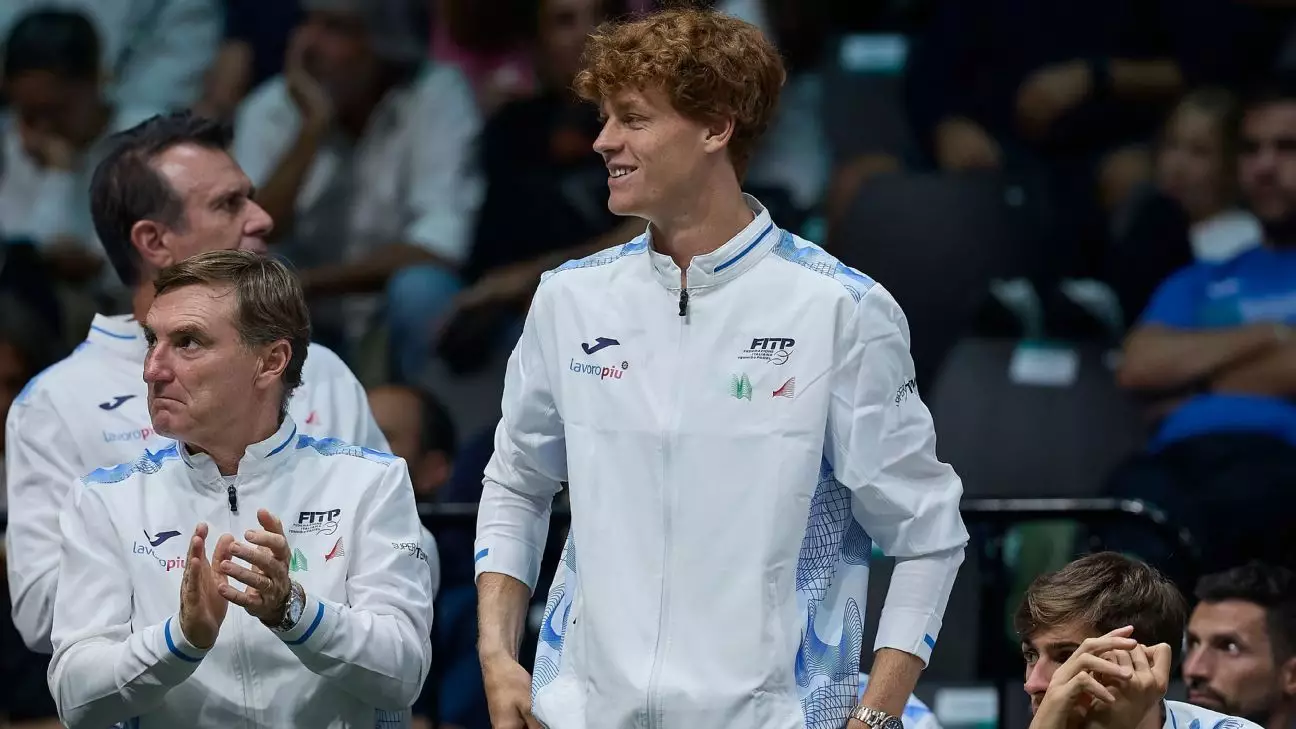In the ever-evolving landscape of professional sports, the dynamics of an athlete’s support team can significantly impact their performance and mental well-being. This theme was epitomized by Jannik Sinner’s recent announcement of changes within his team following a controversial doping incident. Introducing Marco Panichi as his new fitness coach and Ulises Badio as his physiotherapist marks a pivotal shift for the young American tennis star, especially after his previous team faced scrutiny in the wake of a doping scandal.
The backdrop to this transition is crucial to understanding the gravity of Sinner’s decision. Despite experiencing immense success and collecting accolades, including his US Open triumph, Sinner faced disciplinary issues earlier in the year due to two positive tests for a banned substance, Clostebol. However, the circumstances surrounding these tests illuminates both the pitfalls of the sports industry and the ongoing debate surrounding athlete accountability. The fact that the substance entered Sinner’s system unintentionally—a result of improper procedures by his former physiotherapist—highlights systemic issues within athlete care and oversight.
With his bold decision to sever ties with his previous staff and bring Panichi and Badio into the fold, Sinner appears to be focusing on a more professional and serious approach to his training regimen. Both new team members come with commendable credentials, having previously worked with tennis icon Novak Djokovic. This connection not only boosts Sinner’s profile but also promises the potential for exceptional training protocols that may enhance his competitive edge.
The arrival of experienced professionals suggests a renewed emphasis on meticulous preparation and rigorous health standards. Importantly, Sinner has reaffirmed his alliance with his osteopath, Andrea Cipolla, illustrating the importance of a comprehensive support system that prioritizes both physical fitness and injury prevention.
The implications of these changes extend beyond just Sinner’s training environment; they encompass his psychological readiness and public image as well. By publicly sharing this transition on social media, Sinner is not only welcoming his new coaches but actively engaging with his fanbase, which is pivotal in shaping his narrative moving forward. This level of transparency may help rebuild trust with fans who are still processing the fallout from the doping incident.
As Sinner prepares for upcoming tournaments in Beijing and Shanghai, he stands at a crossroads of opportunity and adversity. The changes within his team could signal a fresh chapter in his career, setting the stage for sustained success. Ultimately, the tennis world will closely observe how these strategic decisions manifest in Sinner’s performance on the global stage, as he continues to strive for excellence amidst the pressures of professional competition.
Jannik Sinner’s overhaul of his team underscores the multifaceted challenges faced by athletes today. It highlights the interplay between personal integrity, the quest for excellence, and the impact of public scrutiny—the very essence of navigating modern sports.

